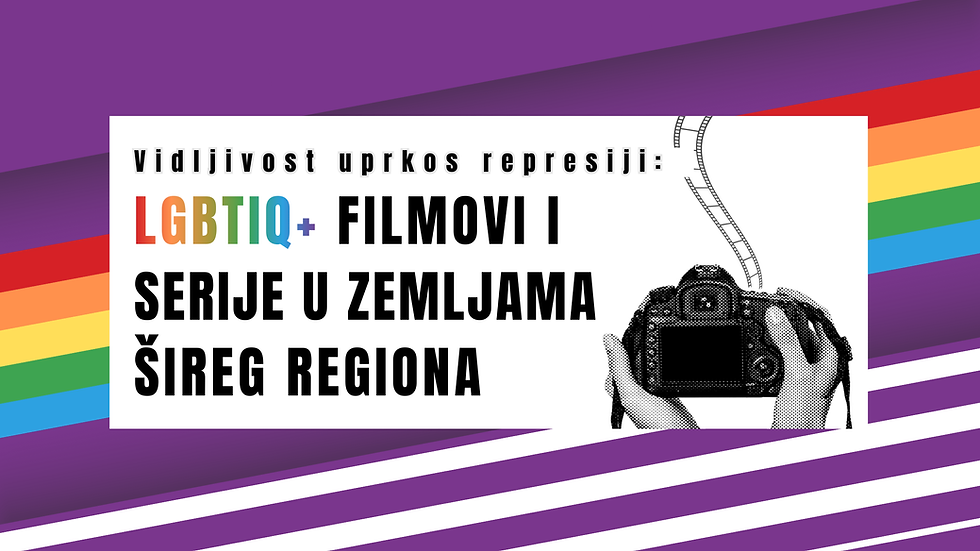The Closet Is Not a Place for Living – The Coming Out Process
- Oct 18, 2024
- 4 min read

"Until the day I die, I will look back with pride on the courage I found to face, head-on, the battle against the spirit that has, for time immemorial, injected poison into me and others like me. Many have been driven to suicide because their life’s happiness was tarnished. Truly, I am proud to have found the courage to strike the first blow to the hydra of public scorn."
Although National Coming Out Day (NCOD) was first celebrated in 1988 with the aim of removing stigma and misinformation about LGBTI+ people, awareness of self-liberation through coming out existed as early as the 19th century, as we can see from the quote by the German lawyer, journalist, and writer Karl Heinrich Ulrichs.
Coming Out as a Fundamental Form of Activism
NCOD (National Coming Out Day) was initiated by Robert Eichberg and Jean O'Leary in 1988. Eichberg, who passed away in 1995 due to complications from AIDS, was a psychologist from New Mexico and founder of the personal growth workshop "The Experience." O'Leary was an openly lesbian political leader and long-time activist from New York, and at the time, she was the head of the National Gay Rights Advocates in Los Angeles. LGBTI+ activists, including Eichberg and O'Leary, did not want to react defensively to anti-LGBTI+ actions, believing that such responses would be predictable. This prompted them to establish NCOD to maintain a positive approach and celebrate coming out. The date of October 11 was chosen as it marked the anniversary of the Second National March on Washington for Lesbian and Gay Rights in 1987. Eichberg and O'Leary believed that in an atmosphere of condemnation of anything deviating from not only heteronormativity but also cisnormativity and Anglo-American norms, the best weapon was to break the perception that these individuals were of questionable character – instead, they were our family members, friends, colleagues, neighbors, and people we value.
Coming Out as a Form of Self-Liberation
As previously mentioned, the first LGBTI+ individuals’ incentives to come out date back to before 1988. Karl Heinrich Ulrichs, a German lawyer, journalist, and writer, made the brave decision in 1862 to come out to his family and friends and began writing essays under the pseudonym Numa Numantius about different sexual orientations, intersex individuals, and the need for decriminalization of same-sex relationships. Although he often came into conflict with the law due to his writings, Ulrichs can be considered the first modern LGBTI+ activist.
Different Forms of Coming Out
The process of coming out, as liberating as it can be, may have its consequences:
A person may become a target of various forms of violence.
A person may be rejected by family, friends, or their community.
A person may face discrimination in employment, the workplace, or in seeking housing.
Because of these risks, LGBTI+ individuals are often advised to carefully assess how safe it is to come out and to whom. Some choose to come out only to their closest friends, some limit it to members of their community, while others may decide to delay it until they finish school, find a job, or become financially independent. Acknowledging one's own sexual orientation and gender identity is a form of coming out that requires a certain degree of courage. Some people signal their belonging to the LGBTI+ community through their appearance, clothing, or interests, which represents another form of coming out. To avoid verbal coming out, which can be exhausting or dangerous, many resort to wearing badges with queer symbols, tattoos, or adopting a specific style of dress. However, due to the mainstreaming of trends from queer and POC communities, sometimes even cisgender heterosexual individuals wear similar things, which can lead to confusion if the identity is not clearly confirmed.
The Glass Closet and Queerbaiting
Celebrities, whether real people or fictional characters, are often under pressure to be open about their private lives or to create the illusion of openness. The media often focuses on their romantic relationships and partners. Coming out remains a very risky step for some, as they may lose part of their audience or be limited to roles and projects only related to their LGBTI+ identity. In 2021, Kate Winslet stated in an interview with The Sunday Times that she knows actors who have chosen not to reveal their identity for these reasons. Celebrities are under greater pressure than the average person because every detail of their life is scrutinized and interpreted.
Coming out can evoke a range of emotions – from liberation to fear and stress. It is a process that exposes the individual to the public and potential judgment, but also to understanding. Everyone should have the right to come out at their own pace, with a sense of safety. While NCOD is celebrated on October 11, the spirit of that day can be lived out every day of the year, whenever a person feels ready and safe.
This article was published with the support of the American people through the U.S. Agency for International Development (USAID). The content of this article is the sole responsibility of Tuzla Open Center and does not necessarily reflect the views of USAID or the Government of the United States.




Comments